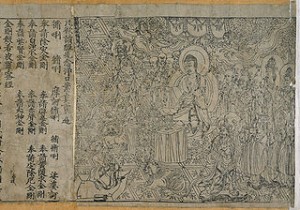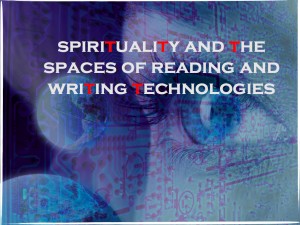

an early equation
For me text is a natural extension of our language. It was an inevitable step we took in our development along with other technologies, like tool making. The development of systems to save and repeat our spoken utterances, to make them able to be transported by someone other than ourselves, continued our progression towards becoming a knowledge-based, hierarchical society. Through the technology of text we extended our minds and memories beyond our bodies into the environment. Is this unmitigated good? Probably not, but it is and cannot be undone. We are the dominant species on the planet because of it.
This is a quote from an interview with Timothy Taylor, author of the book The Artificial Ape. It is really related to technology, but makes reference to how attached we are to our text.
17:06 23 August 2010 Culture Lab
“Unlike other animals, we don’t adapt to environments – we adapt environments to us. We just passed a point where more people on the planet live in cities than not. We are extended through our technology. We now know that Neanderthals were symbolic thinkers, probably made art, had exquisite tools and bigger brains. Does that mean they were smarter?
If you said to me, you can either have your toes cut off or your whole library destroyed, with no chance of ever accessing those works again, I’d say “take my toes” – because I can more easily compensate for that loss. Of course, you could get into a grisly argument over how much of my biology I’d give up before I’d say, “OK, take the Goethe!” ”
http://www.newscientist.com/blogs/culturelab/2010/08/artificial-ape-man-how-technology-created-humans.html
In a more formal way Karen Barber, in her book The Anthropology of Texts, Persons and Publics, says of the nature of text:
“Though many people think of “text” as referring exclusively to written words, writing is not what confers textuality. Rather, what does is the quality of being joined together and given a recognizable existence as a form. Text is a more neutral and more encompassing term: text, in the sense in which I am using it in this book, is utterance (oral or written) that is woven together in order to attract attention and to outlast the moment…
… And texts are the hot spots of language: concentrations of linguistic productivity, forms of language that have been marked out to command heightened attention – and sometimes to stimulate intense excitement, provoke admiration and desire, or be the mainstay of memory.
Texts are constructed to be detachable from the flow of conversation, so that they can be repeated, quoted and commented upon – they are forms of language, that is, which, whether written or oral, are accorded a kind of independent and privileged existence. At the same time, however, all texts, including written ones, are forms of action, speech acts embedded in the context of their emission and reception….
…Texts are one of the things societies produce, and one of the things people do. As such, they are interesting in the same way that kinship, ritual and agriculture are interesting, as forms of social behaviour widely distributed and generally central to people’s communal experience. (p.10)”
Barber, K. (2007). The Anthropology of Texts, Persons and Publics. Cambridge University Press. Cambridge, UK.








